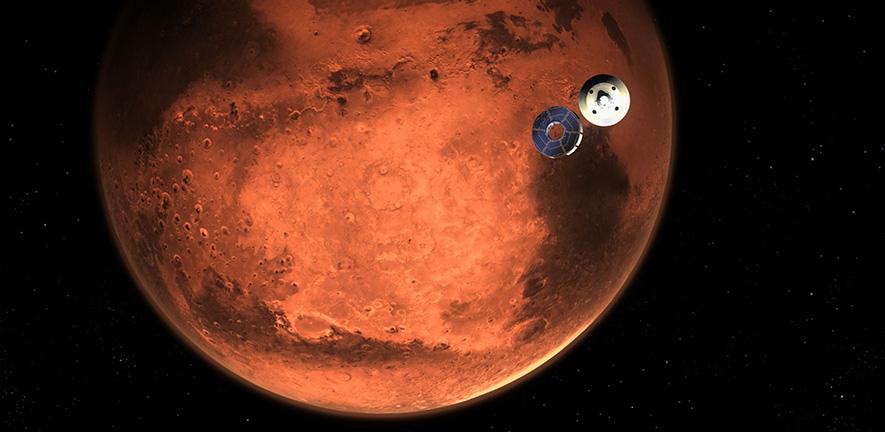
Submitted by Administrator on Thu, 13/05/2021 - 10:09
Cambridge IPLU member Professor Nicholas Tosca is the only UK scientist selected by NASA to be part of the core science team for the Mars Perseverance 2020 mission, which is searching for signs of past life on the red planet.
The Mars 2020 Participating Scientist Program brings together scientists from different research fields to determine the habitability of the ancient Martian environment by looking for biosignatures – signs of possible past microbial life – and environmental data within rocks collected on Mars.
When the rocks are returned from Mars, it will mark the first time that scientists on Earth get the chance to examine Martian rocks in person.
Tosca’s role in the science team will be to reconstruct the early climate and environmental conditions in which early Martian life may have first stirred.
The Mars 2020 Perseverance Rover launched last July and will land on 18th February 2021 at the Jezero Crater, which is believed to contain sedimentary rocks formed in an ancient lake. The rocks, which are thought to be over 3.5 billion years old, contain vital clues about the Martian environment and the planet’s geological processes.
“Jezero is the best place to look because most scientists who are interested in the early surface of Mars think that an ancient lake is an ideal setting to preserve evidence of life,” said Tosca.
The rover will drill pencil-sized tubes of rock from the ancient lake, which will be stored in sealed tubes for pickup by a future mission that will ferry them back Earth for analysis. The current plan – a joint campaign between NASA and the European Space Agency – is for the Martian samples to be returned to Earth within 10 years.
Read full article here.
